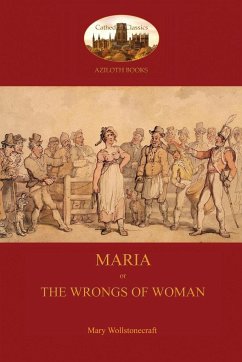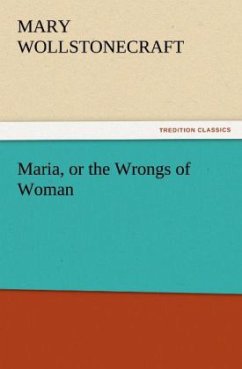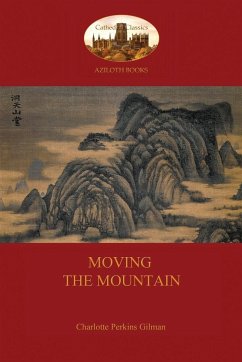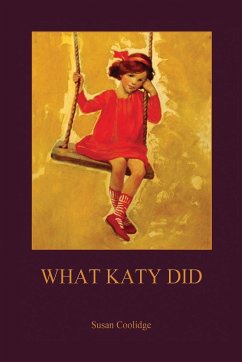
Maria, or The Wrongs of Woman (Aziloth Books)
Versandkostenfrei!
Versandfertig in 1-2 Wochen
11,99 €
inkl. MwSt.
Weitere Ausgaben:

PAYBACK Punkte
6 °P sammeln!
Mary Wollstonecraft was born at Spitalfields, London on 27 April 1759. Her happy family life gradually deteriorated as financial problems mounted, and her father became increasingly inebriated and prone to violence. In 1778 she left home and eventually decided to earn her living as a writer - an almost impossible ambition for an unattached female at that time. An ardent advocate of female emancipation, in 1792 Wollstonecroft achieved fame (and not a little notoriety) with her passionate and well-reasoned 'Vindication of the Rights of Woman'. Six years later, she followed up her attack with the...
Mary Wollstonecraft was born at Spitalfields, London on 27 April 1759. Her happy family life gradually deteriorated as financial problems mounted, and her father became increasingly inebriated and prone to violence. In 1778 she left home and eventually decided to earn her living as a writer - an almost impossible ambition for an unattached female at that time. An ardent advocate of female emancipation, in 1792 Wollstonecroft achieved fame (and not a little notoriety) with her passionate and well-reasoned 'Vindication of the Rights of Woman'. Six years later, she followed up her attack with the novel 'The Wrongs of Woman'. Widely regarded as an early feminist masterpiece, 'Wrongs' uses the fictionalized account of Maria, an intelligent but ill-used wife and mother, to personalise the misery and injustice visited upon women by an unfeeling patriarchal society, in which the world was "a vast prison, and women born slaves."













